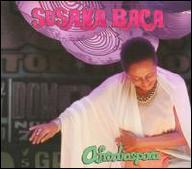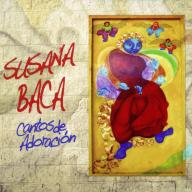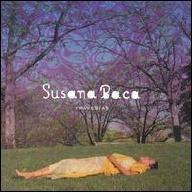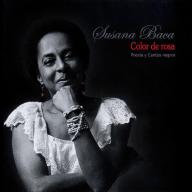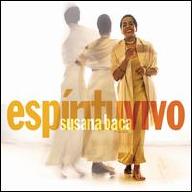Baca was born in the Black coastal barrio of Chorrillos, outside Lima, where descendants of slaves have lived since the days of the Spanish Empire. Her family was interested in music; her father played the guitar, her mother was a dancer, and she grew up listening to Cuban musicians like Pérez Prado and Beny Moré. Baca's singing first came to public attention when she was a student. She formed an experimental group combining poetry and song, and started performing after receiving grants from Peru's Institute of Modern Art and the National Institute of Peruvian Culture. She attracted the attention of the composer and singer Chabuca Granda, who became her mentor. Granda encouraged Baca to record, but a 1983 record deal fell apart upon Granda's death. Baca then turned her attention to researching the Afro-Peruvian tradition. With her husband, globally renowned musician Ricardo Pereira, she founded the Instituto Negrocontinuo (Black Continuum) in Lima, which is dedicated to preserving Afro-Peruvian culture.
She released the Seis Poemas EP in 2009, following it with the full-length, globally acclaimed Afrodiaspora in 2010. That year, Baca was appointed Peru's Minister of Culture. She was only the second Afro-Peruvian to hold the position. In November 2011 she was elected to the Organization of American States (OAS) as President of the Commission of Culture, where she served for two years.
She resumed performing in 2014 and, in 2016, guested on two tracks from Snarky Puppy's Family Dinner, Vol. 2. Shortly after beginning a recording project with her band, the COVID-19 pandemic hit. At the suggestion of her husband, she abandoned the project and recorded A Capella: Grabado en Casa Durante la Cuarentena at home without accompaniment. It was comprised of classic songs she often performed solo in concert.
Baca returned to ensemble recording for 2021's Palabras Urgentes. Celebrating her 50th year in the music business, she chose Snarky Puppy's Michael League as her producer. She cut songs with long histories including "La Herida Oscura" by longtime friend Chabuca Granda, and the 1937 hit tango "Milonga de Mis Amores" by Pedro Laurenz. She included the salsa standard "Sorongo" by Tite Curet Alonso, and re-recorded "Vestida de Vida," the title track from her 1997 album Vestida de Vida: Canto Negro de Las Americas. ~ Spencer Harrington, Rovi



